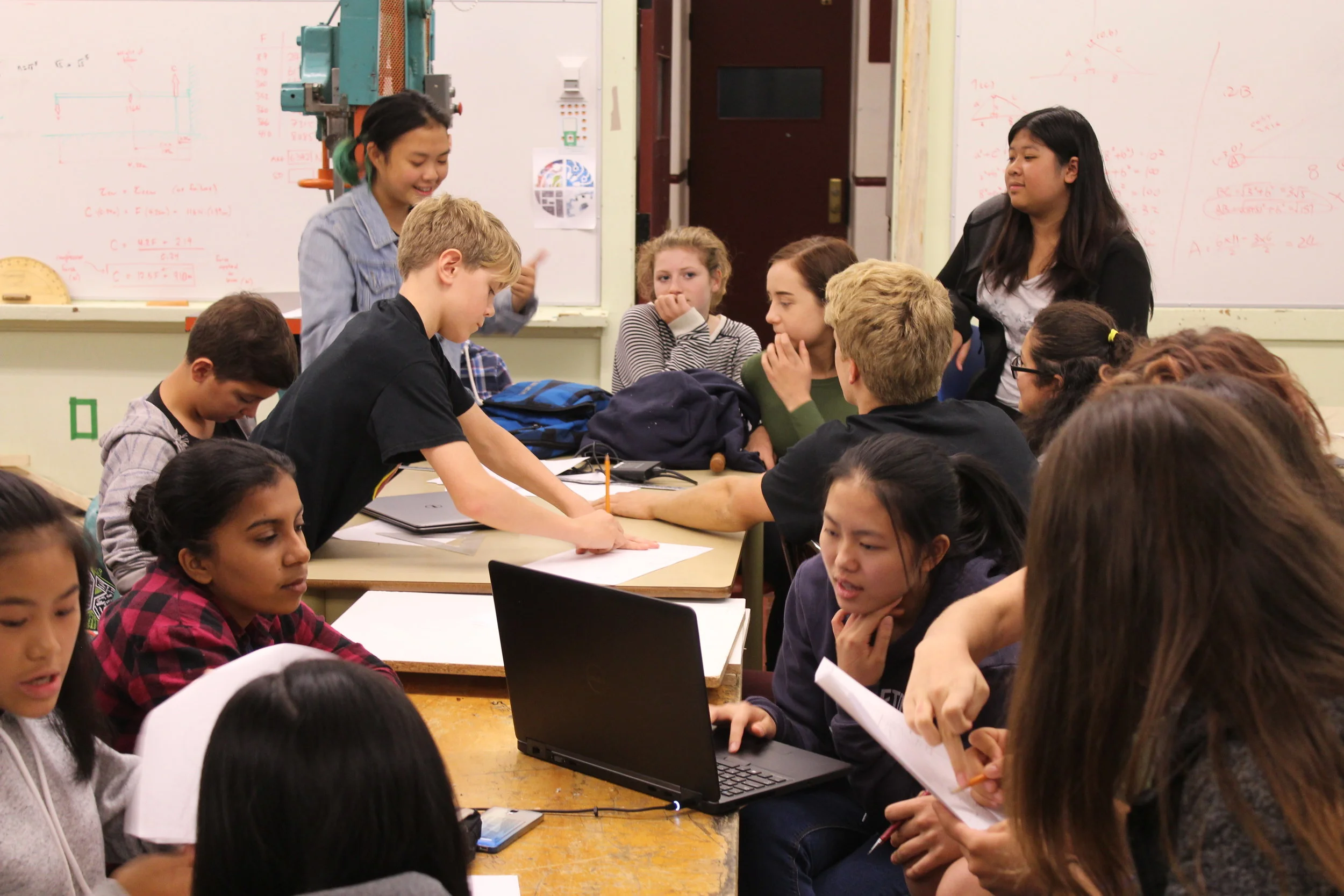Project Based Learning, or more commonly, PBL, is “hands-on” learning. With pedagogical roots in medical school, PBL has been applied very successfully to STEM courses at all levels and is recognized as providing better motivation, comprehension, and university preparedness than traditional methods.
Presented with engaging, real-world problems, students work collaboratively in groups to research, develop strategies, build artifacts, and analyze the results. Teachers facilitate and mediate while keeping the students at the centre of their learning. Students communicate their learning through presentations and reflections in a variety of different modes including tests, digital portfolios, competitions, and science fairs.
Templeton's STEM program dovetails perfectly with the new BC Curriculum. Given our program's focus on the core competencies we were chosen as a member of the K-12 Innovation Patnership as an example of student-centred learning that focuses on 21st Century skills.
Projects vary in length from 3 to 8 weeks in length and are chosen to explore a variety of STEM fields. While there is ample opportunity to excel, the curriculum and workload are designed to be level appropriate and suitable to diverse interests.
The Buck Institute of Education is a phenomenal PBL resource that has overviews, scholarly articles, and links to PBL in the media

